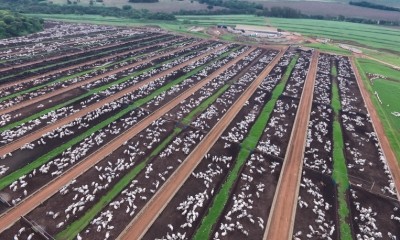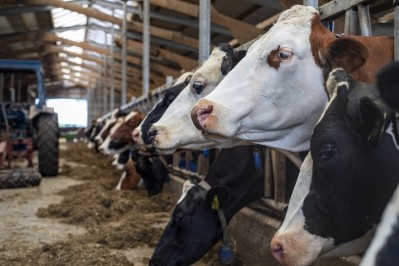DSM sees volume gains in animal nutrition business

Volumes were partly impacted by the continued spread of the African swine fever (ASF) in China and Southeast Asia. But the animal nutrition division continues to strengthen its global market positions, by developing new specialty products, expanding its premix offerings, and focusing on higher growth segments such as aquaculture, it added.
Overall, the company reported a net profit of €764m (US$831.5m) for 2019. Adjusted net profit was €830m (US$903.4m), up 8% versus underlying business in 2018.
Animal nutrition saw 4% organic growth for the full year, against a strong 8% last year and despite the negative effect of ASF, while volumes and prices in the division jumped 2%.
“Sales were strong for all species and in all regions, except for sales to the swine business in China and South-East Asia which were impacted by the ASF. This region accounts for more than half of global pork production, with culling measures introduced in response to the ASF, affecting 35-50% of pork production in the area.
“The rapid spread of this disease has disrupted the global equilibrium of animal protein in the short term. As a result, in the second half of 2019, DSM was unable to fully offset the decline in pork production in the region with increases in production from other regions and species.”
As regards any potential impact of the coronavirus, DSM said it continues to monitor the situation closely.
It Q4, the animal nutrition business delivered an organic growth of 2%, driven by volumes, it added.
“As in Q3, the strong performance across the world, was partly offset by the negative effects of the ASF in China and South-East Asia.”
Innovation focus
DSM also reported progress in relation to its various animal nutrition related innovation strands, with 2019 seeing is JV with Evonik, Veramaris, getting going on commercial production of its omega-3 fatty acids from marine algae for aquaculture. It is now supplying three of the largest salmon feed producers.
“The first Veramaris-fed salmon were distributed by three major retailers across Europe. Sales volumes are expected to develop in line with the ramp-up of the plant with target production capacity to be reached early 2021.”
Last year saw DSM file for European registration to commercialize its methane reduction product, Bovaer. That is expected in late 2020/early 2021, it added.
Balancius, its feed ingredient designed to improve the gastrointestinal functionality in poultry, was launched in Europe in 2019, following its introduction in the Americas in 2018.
In 2019, DSM established a vitamin E partnership with Nenter. Today, it said the production facilities and related assets under that JV, currently being renovated, are not expected to resume production activities before Q3 2020.















